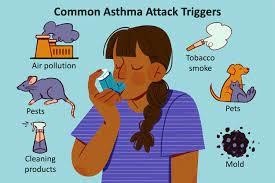The nurse of a medical-surgical unit receives a report from a post-anesthesia care unit (PACU) nurse for a client who is being transferred following a right hemicolectomy. The PACU nurse reports, "The client has an intravenous (IV) infusion of 1000 mL lactated Ringer's infusing at 125 mL/hr into the left wrist with 300 mL remaining. Prescriptions include morphine sulfate 2 mg IV every 2 to 4 hours for pain, last administered 30 minutes ago; ondansetron 4 mg IV every 8 hours for nausea, last administered 15 minutes ago." Which additional information is most important for the nurse to obtain in the report?
History of vomiting at home for 3 days prior to surgery.
Declining to take ice chips for complaints of dry mouth.
Soft abdomen, absent bowel sounds, no bleeding on dressing.
Peripheral pulses present with full range of motion of both legs.
The Correct Answer is D
A) Incorrect- While the history of vomiting is important to assess, it may not be the most crucial information to gather at this point, as the client is postoperative and the focus is on immediate postoperative care.
B) Incorrect- While assessing for fluid intake is important, the client's refusal of ice chips is not an urgent concern compared to other potential complications, such as pain management, oxygenation, and fluid balance.
C) Incorrect- These assessments are important, but the client's history of right hemicolectomy and the current infusion and medication administration require closer attention to fluid balance, pain control, and oxygenation.
D) Correct- While all options are important to consider, the most critical information in this scenario is assessing peripheral pulses and the range of motion of both legs. A right hemicolectomy involves abdominal surgery and decreased or absent peripheral pulses along with a limited range of motion could indicate impaired circulation, thrombosis, or other post-operative complications. These findings might necessitate prompt intervention to prevent potential complications.
Nursing Test Bank
Naxlex Comprehensive Predictor Exams
Related Questions
Correct Answer is ["A","D","E"]
Explanation
A) Correct- Continuous monitoring of oxygen saturation ensures the client's oxygen levels remain within an acceptable range.
B) Incorrect - Discussing aggressive respiratory treatment options is not warranted based on the provided information. The current treatment plan includes appropriate interventions.
C) Incorrect - Obtaining a sputum culture is important for identifying infections, but it's not an immediate action in the context of the client's current symptoms.
D) Correct- Promoting comfort can help reduce anxiety and potentially improve breathing.
E) Correct- Educating the client about potential triggers supports better self-management.
F) Incorrect - Considering positive pressure ventilation is not indicated at this stage. The client's symptoms are being managed with other interventions.
G) Incorrect - Weaning supplemental oxygen is not mentioned in the patient data or nurses' notes as something that's currently necessary.
H) Incorrect - Preparing for deep tracheal suctioning is not warranted based on the patient data and the current treatment plan.

Correct Answer is ["B","D"]
Explanation
A) Incorrect - Providing a regular diet tray is important for the client's nutritional needs, but it is not as urgent as assessing vital signs or administering Albuterol in response to the client's acute symptoms.
B) Correct- This action is a priority after any assessment or intervention. Vital signs provide important information about the client's overall condition, including heart rate, blood pressure, respiratory rate, and oxygen saturation.
C) Incorrect - Applying oxygen is important, but its priority depends on the client's vital signs and oxygen saturation, which should be assessed first.
D) Correct- Administering Albuterol as ordered is crucial for addressing the client's acute breathing difficulty. Albuterol is a bronchodilator that helps alleviate asthma symptoms, and timely administration is essential.
E) Incorrect - Performing a pulmonary function test is valuable for assessing lung function, but it's not an immediate concern compared to addressing the client's breathing difficulty.
Whether you are a student looking to ace your exams or a practicing nurse seeking to enhance your expertise , our nursing education contents will empower you with the confidence and competence to make a difference in the lives of patients and become a respected leader in the healthcare field.
Visit Naxlex, invest in your future and unlock endless possibilities with our unparalleled nursing education contents today
Report Wrong Answer on the Current Question
Do you disagree with the answer? If yes, what is your expected answer? Explain.
Kindly be descriptive with the issue you are facing.
